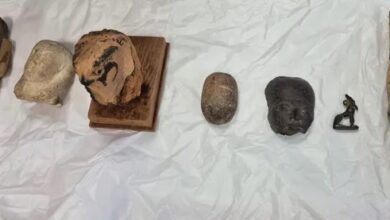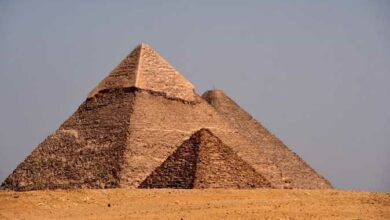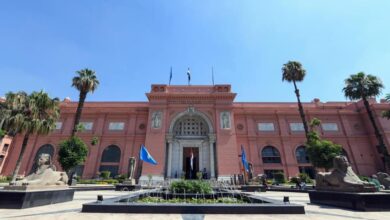Ambiguity has surrounded the destiny of Egypt's new Ministry of Antiquities, following a recent cabinet reshuffle approved on Thursday.
No one has been named to replace the previous and only minister to ever run the ministry, Zahi Hawass. Before the January uprising, the Supreme Council of Antiquities, which Hawass also headed, functioned as Egypt's highest antiquities body and stationed under the Ministry of Culture.
The current secretary general of the Supreme Council of Antiquities, Mohamed Abdel Maqsoud, supports abolishing the ministry and turning it into a council controlled by the cabinet.
"Antiquities do not need a minister. Egypt's antiquity sector's policies are regulated by the Law 117/1983, which grants it sovereignty," Abdel Maqsoud told Al-Masry Al-Youm.
He explained that the antiquities sector funds itself independently and does not need government allocations, noting that its revenue covers expenditures.
The head of the Central Administration of Middle Egypt Antiquities, Abdel Rahman al-Aidy, though, is against the idea. He admitted, though, the sector's return to the Ministry of Culture is unlikely, especially with antiquities employees rejecting the idea.
He added that industry employees objected during a protest Monday to Abdel Fattah al-Banna's nomination as minister because he specializes in restoration rather than archaeology.
Aidy said abolishing the short-lived ministry would be a setback that would benefit corrupt ministry individuals linked to the Mubarak regime. He said the antiquities sector should have a separate ministry, as Egypt relies heavily on tourism and antiquities revenue.
Aidy said the current antiquities protection law contains several loopholes that serve the interests of vestiges of the Mubarak regime. He said antiquities employees will request that the ruling Supreme Council of the Armed Forces (SCAF) and the cabinet amend the law or replace it with another that protects monuments and archaeological sites more effectively.
Aidy threatened on Tuesday to issue a blacklist including evidence against corrupt antiquities officials who he alleges profiteered from their posts under Hawass.
Translated from the Arabic Edition




